
… because Ted didn’t want to.
When Nabokov concluded back in the 1950s that some of his American students’ ears were merely ornamental, I’m sure many adults believed that he was referring to the kids’ musical taste. It’s no wonder. These people grew up in a world where Frankie Laine was considered progressive. The refined and mannered style of swing era vocalists was gradually being replaced by the raw emotion and indecent body language of young belters inspired by the dark forces of the blues.
As rock ’n’ roll took over the airwaves, the concept of easy listening’ was introduced when some radio stations continued playing traditional pop music aimed at mature audiences. The Billboard Easy Listening chart debuted in July 1961, paving the way, at least for a while, for old-timers like Perry Como and Frank Sinatra who were no longer able to crack the pop charts, and at the same time creating a market for new acts like Herb Alpert, Bert Kaempfert and the Baja Marimba Band.
Follow us as Mix Six investigates the pops in the 1960s.
“Tenderly,” Paul Weston (Download)
Let’s do it the right way and start this journey softly, nay, let’s start it “Tenderly” with the gloriously imitable Paul Weston, a veteran in this context, and his band of marshfellows who so eagerly spun musical candy from the Capitol Records assembly lines at the time, around 1960. Record upon record, they ruthlessly spilled sparkly, pinkly liquid over their aural brass pots and clarinets utilizing an army of stringed wooden spoons, which to the untrained and modern ear resembles the grating shape of a 1,000 violins. I love it. The grown-ups of the day loved it —- you really can’t blame them for being pissed when back beats and amps came along and ruined everything.
Paul Weston had a long and prosperous career as a pianist, composer, arranger and conductor — if you own a 78 or two, chances are you’ll find “w/ Paul Weston orch.” printed somewhere on the label. He married songstress Jo Stafford in 1952 (and stayed married — to her) and he served as the first president of the National Academy of Recording Arts and Sciences. He died in 1996 at 84. These guys never die young, which makes sense considering that you probably have to be of a certain age (mine?) to be able to make (or enjoy?) this kind of music.
“Bachelor in Paradise,” Henry Mancini (Download)
“Lights down low, Frankie’s records and cocktails on the floor.” I have turned the lights down low and offered some of my lovers a cocktail on the floor to the sound of this song. I’m not sure if it was the music or my tastefully pale self layered out on the floor, relaxing on the sheepskin au naturel, but the lady usually laughed nervously and left in horror. Maybe actual Frankie records would’ve done the trick?
”Bachelor in Paradise” was nominated for an Academy Award for best song in 1961. Thankfully, Mancini beat himself with “Moon River”, which is a bloody perfect song no matter what you say. Henry Mancini, the man, is an American treasure that deserves to live forever on dollar bills or as some sort of cheese-flavored candy bar.
“Born Free,” Roger Williams (Download)
In 1966, neither the Beatles nor the Rolling Stones could touch piano virtuoso Roger Williams and his rendition of the hottest tune in adult contemporary circles at the time — at least not on the Billboard Hot 100 list, where this track finished at #12 on the year-end list, 4 steps ahead of the Beatles’ ”We Can Work it Out”.
The British singer Matt Monro originally recorded the song, which was written by John Barry, for the James Hill movie Born Free. It won an Academy Award for best song and became Monro’s signature song. Among the countless artists who covered it in the late 1960s were Andy Williams, Frank Sinatra and Connie Francis, but Roger Williams had the hit version.
Williams just celebrated his 86th birthday, he has released 116 albums and his 1955 version of ”Autumn Leaves” is the only piano instrumental to reach #1 on the Billboard Hot 100 list. Watch him enjoying himself in Vegas in 2010 on his own YouTube channel. Like I said, these guys never die.
“Last Date,” Floyd Cramer (Download)
While we’re on the subject of pianists, here’s some easy country from Floyd Cramer. He was a prolific session musician, a member of the so-called Nashville A-Team in the late 1950s, and he made his breakthrough as a recording artist with this record.
His relaxed piano style was quite a departure from the typically percussive piano stylings of the late 1950s, and ”Last Date” was a huge chart success in 1960, which is pretty hard to grasp in 2011 considering how faceless and inoffensive the music is. Then again, in the olden days of yore, like when I was a young adult, inoffensiveness used to be the hallmark of the mainstream. Cramer helped shape the Nashville sound, mixing pop into country music to reach a wider audience, and I’m betting Glen Campbell was listening.
“Summer Samba,” Walter Wanderley (Download)
I dare you to make love to this music. If you’ve never felt like a cad before, I’m pretty sure you’ll feel like one humping along with your lady friend to the sleek sound of Walter Wanderley’s Hammond L100. So erase the image of those pesky ’90s-hipsters who tried to make this music their own from your mind, let your chest hair grow, fertilize the outer surface of your upper lip, find some lame sunglasses and let the ladies get to know Thomas Magnum’s badass uncle.
The bossa nova was inescapable in the 1960s and everyone from Glen Gray to Vic Damone recorded his own bossa nova album. Wanderley was a Brazilian keyboardist who recorded a couple of albums in the U.S. produced by Creed Taylor for Verve in the mid-1960s. ”Summer Samba” was a solid hit for him.
“A Man and a Woman,” The Free Design (Download)
Let’s round off this edition of Mix Six on a mellow note (as if we ever left it) with The Free Design and their version of Francis Lai’s theme song from Claude Lelouch’s hit movie. It adds some jazz flute and a slightly psychedelic flavor to the proceedings, which is appropriate, because by the end of the 1960s the lines had blurred and easy listening artists were starting to weave pop and rock music into their repertoire.
Andy Williams covered the Beatles, Bobby Darin cut folk records and Jack Jones grew sideburns. By 1973, Nelson Riddle was playing the funk. Desperate measures to be sure. Times were desperate too, especially for the old trad-pop vocalists, who had fallen badly out of favor with the popular taste. By 1970, most of them had lost major label support. But, to the disappointment of many, the tags — easy listening, middle-road, adult contemporary, pops, whatever you choose to call it — have certainly stuck it out.
Related articles
- Soul Serenade: Lorraine Ellison, “Stay With Me” (popdose.com)
- Frankie Avalon – “Why”/”swingin’ on a Rainbow” (joetroiano.wordpress.com)
- Connie Francis – “Her Number-one Hits” (joetroiano.wordpress.com)

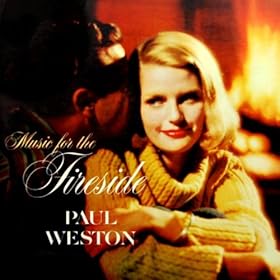

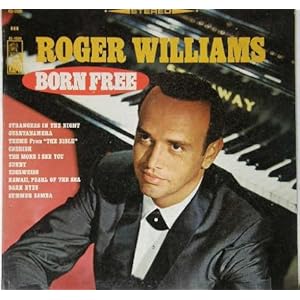
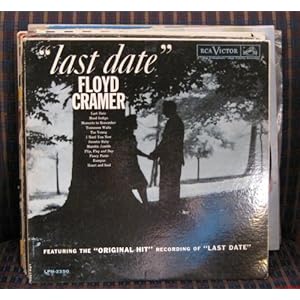
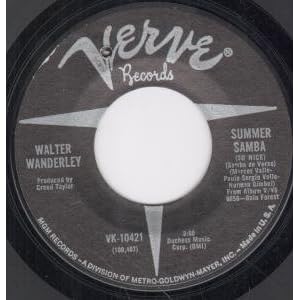
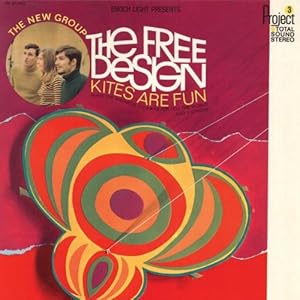




Comments